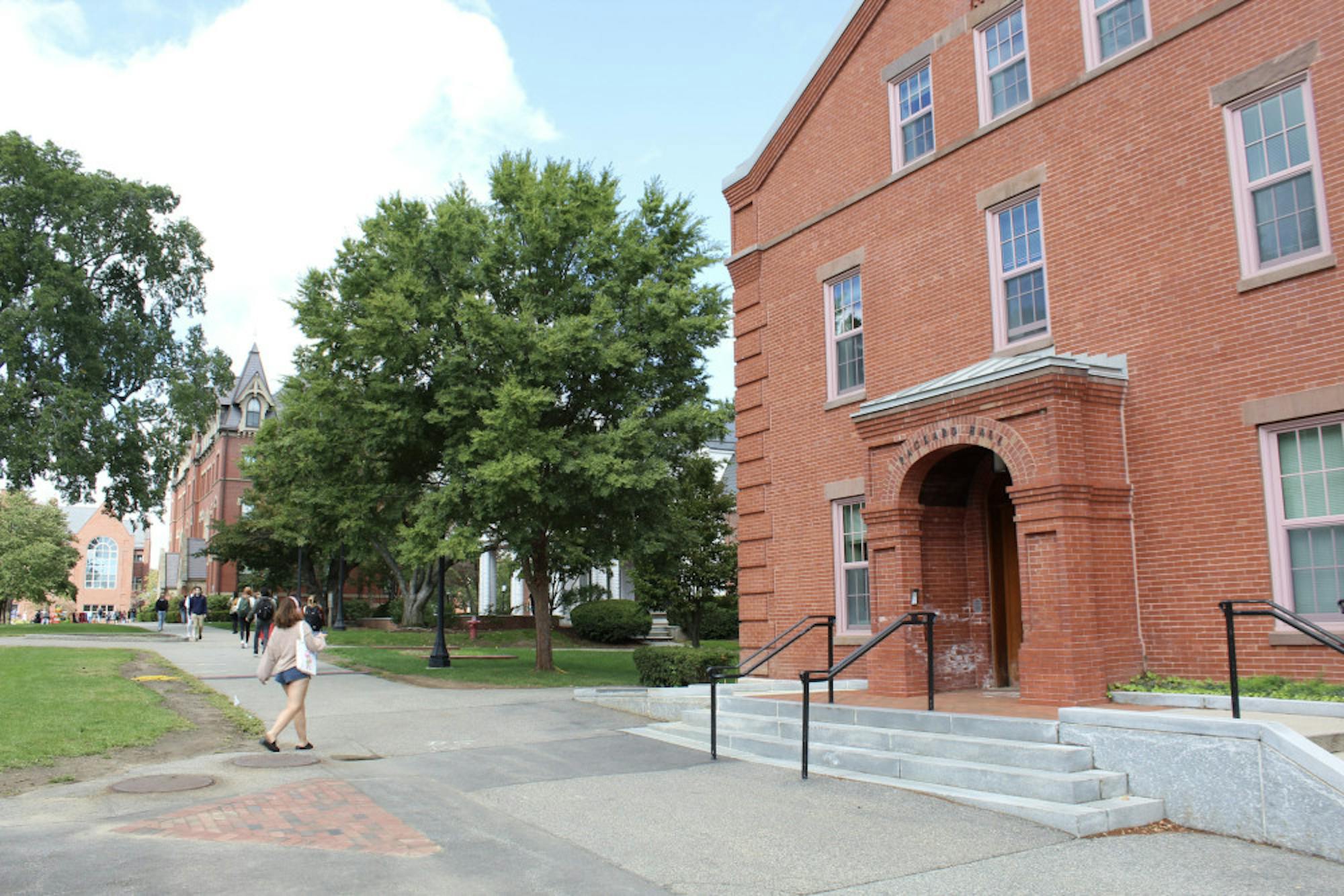Peter Levine, Lincoln Filene Professor of Citizenship & Public Affairs and an associate dean at Tufts, received the Established Leader Award from the Civic Engagement section of the American Political Science Association at its annual meeting in September. At the same meeting, Tufts Professor of Political Science Deborah Schildkraut received an honorable mention from APSA’s Latino Caucus for her book, “States of Belonging: Immigration Policies, Attitudes, and Inclusion.”
After over 30 years of experience in the field of civic studies and 14 years at Tufts, Levine has accomplished a great deal. In addition to his academic and administrative positions, he has written eight books on philosophy and political theory, and edited several more.
Levine also helped found and lead CIRCLE, an acclaimed research center at Tufts. CIRCLE, the Center for Information and Research on Civic Learning & Engagement, aims to “understand and improve the contexts and conditions that shape youth engagement,” a mission which aligns with Levine’s personal goals.
“It’s very hard for an individual to be civically engaged by themselves,” Levine explained. “They need to have organizations and networks that support them … a lot of our civic organizations are pretty weak. …They don’t have very good funding models or sources of support.”
Levine highlighted the importance of including youth outside of Tufts when thinking about civic engagement.
“Within Tufts itself are groups, inclusive of all kinds of students,” he said. “Considering that Tufts is itself a kind of an elite entity, how inclusive are we of the big, broader world?”
In his own life and research, Levine has made significant attempts to represent a wide range of viewpoints and to initiate conversations about civic life with groups of people from different backgrounds.
“For about 15 years I’ve been doing institutes for activists and professors, a mix of activists and professors in multiple countries, where we talk about theories of civic life, pretty intensively sometimes for two weeks at a time,” Levine said.
According to Levine, the theories presented in his most recent book, “What Should We Do? A Theory of Civic Life,” emerged largely from these “discussions with several hundred people in these institutes in the U.S., Ukraine, Germany and Mexico.”
Schildkraut was honored by APSA for her book “States of Belonging: Immigration Policies, Attitudes, and Inclusion,” which she co-authored along with Tomás R. Jiménez, Yuen J. Huo and John F. Dovidio, focuses on the contrasting experiences of immigrants in Arizona and New Mexico.
Schildkrait described her research for the book, explaining that Arizona and New Mexico are very similar, historically and demographically. Both became states in 1912. About one in eight Arizona residents is an immigrant, compared to almost one in 10 New Mexico residents. In both states, the majority of immigrants came to the U.S. from Mexico. Despite all the commonalities between the two states, Schildkraut acknowledged that their approaches to immigration are vastly different.
Although larger immigration policy decisions are typically delegated to the federal government, individual states often determine how easy it is for residents to acclimate once they have arrived. They determine the history taught and the languages spoken in schools, who can get a driver’s license, and who can attend a public college within the state. While New Mexico has been very welcoming to immigrants, Arizona has met them with hostility, according to Schildkraut’s research.
Schildkraut referenced one account from the book of an Ecuadorian named Rafael Ortiz who lived in New Mexico but frequently traveled to Arizona for work. Despite the fact that Ortiz was a naturalized citizen of the U.S., he often worried about being detained by Arizona law enforcement officials, who he knew “had been empowered to pull over individuals they suspected of being undocumented.”
“He talked about feeling a sigh of relief every time he crossed the state border,” Schildkraut said. “To me, that was a powerful … encapsulation of what we were trying to study.”
Schildkraut credited an article she read during her time in graduate school at Princeton University as the root of her interest in immigration policy and identity.
“[The article] looked at public opinion about language policy: should English be the official language? Should election ballots be only in English? And there were some things I loved about that article and some things that drove me crazy,” she said. “So simply wanting to dig deeper into the things I didn’t like about that particular research was motivating to me.”
She also reflected on her own family history in the context of her research.
“I’m, in some ways, an embodiment of the mythical American dream,” Schildkraut said. “You know, poor immigrants coming on a boat to Ellis Island with nothing, and a few short generations later, here I am: a professor at an American university.”
Now that “States of Belonging” is published, Schildkraut is shifting her focus to several other projects she has in the works.
“I’m actually working on a research project with [Professor Jeffrey] Berry and Dean Glaser,” she said. “We’re looking at how ideology shapes how people feel about ... everyday building blocks of democracy.”
She is also exploring “what whiteness means to white Americans, and the conditions under which it might or might not be relevant for how they engage with politics.”
Both Levine and Schildkraut’s awards reflect decades of accomplishments in the fields of civic engagement and political science. Nimah Mazaheri, chair of the political science department at Tufts, called “States of Belonging” a “must-read for anyone interested in the topic,” and described Levine’s award as “a richly deserved recognition of his countless efforts over the years.”
Levine’s award is the first civic engagement award ever given by the APSA.
“I think it’s pretty important and noteworthy that the American Political Science Association has started to honor civic engagement research,” Levine said. “Tufts has been doing it all along.”






